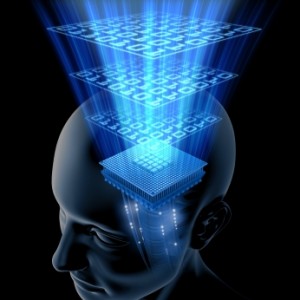The Noblest Expression of the Human Spirit
by Alexander Green
 Here’s a riddle.
Here’s a riddle.
What is the secret of eloquence, the standard of virtue, the basis of moral authority, the object of philosophy, the most formidable power on earth, the noblest expression of the human spirit, and beauty itself?
Thoreau said it was better than money, love or fame. The New Testament proclaims it the basis of personal freedom (John 8:32). Schopenhauer observed that it is first ridiculed, then violently oppressed, then accepted as self-evident.
The answer, of course, is truth. Yet you’ll notice that the supply often exceeds demand.
The other day, for instance, a friend forwarded me a political email filled with dubious accusations and misstatements of fact. You would think a message that is unsigned, printed in three colors and written in ALL LARGE-CAPS might engender a bit of skepticism. Yet it resonated with him so strongly that he eagerly accepted it.
We all want to believe that we are in possession of the truth. Even when we’re uncertain, we like to feel that we’re evaluating information rationally and will surely recognize the truth when we see it.
But as Winston Churchill observed, “Men occasionally stumble over the truth, but most of them pick themselves up and hurry off as if nothing ever happened.”
 We all walk around with a picture in our heads that we believe reflects the world as it truly is. We depend on this image. It governs our thoughts, feelings and behavior.
We all walk around with a picture in our heads that we believe reflects the world as it truly is. We depend on this image. It governs our thoughts, feelings and behavior.
But is it accurate?
With today’s radio, cable TV and Internet, you can watch, read or listen to whatever kind of news pleases you, and indulge your political, social and scientific theories, whether sophisticated or naive, extremist or pedestrian, grounded in reality or so far out you’re floating in the asteroid belt.
It’s called selective exposure. Rather than dealing with the unpleasant sensation of having our beliefs tested, we simply steer clear of information that contradicts what we think we know. We carefully select the messages we consume.
As a result, we’re not just arguing over what we should be doing. We’re arguing over what is happening. We’re no longer just holding different opinions. We’re holding different facts.
We don’t have time to investigate everything ourselves, of course. So we rely on conventional wisdom and the opinions of others. We draw generalities from specific circumstances. We accept things we hear or read if they sound credible – and especially if they appeal to our personal prejudices. As we grow older, we even forget or misremember our own experiences.
We are creatures of culture too, brought up to accept certain narratives about how the world is. Yet these preconceptions harden and make us resistant to opposing points of view. They prevent us from opening our eyes… or our minds. And out of politeness or political correctness, we are reluctant to ask questions or voice dissent. We fall back on what is generally accepted rather than doing the heavy lifting and thinking for ourselves.
And that should make us consider from time to time whether our version of reality – our truth – is correct.
Social scientists observe that what we believe – what we accept as true – is highly dependent on our upbringing and the society we live in. We are all caught in a web of cultural context.
Post modernists and deconstructionists have taken this to extremes, claiming that there is no such thing as objective truth, only culturally-based world views and opinions, none any more valid than another.
What a depressing thought, for what are we all pursuing if not objective truth? Yet Oxford biologist Richard Dawkins effectively skewers the postmodern position in River Out of Eden. “Show me a cultural relativist at thirty thousand feet,” he says, “and I’ll show you a hypocrite. Airplanes built according to scientific principles work… Airplanes built according to tribal or mythological specifications don’t. If you are flying to an international congress of anthropologists, the reason you will probably get there – the reason you don’t plummet into a ploughed field – is that a lot of Western scientifically-trained engineers have got their sums right.”
 It is not possible to thoroughly investigate every claim we accept. But not all modes of knowing are equal. In fact, most of our beliefs are derived in one of three ways.
It is not possible to thoroughly investigate every claim we accept. But not all modes of knowing are equal. In fact, most of our beliefs are derived in one of three ways.
The first is tradition. These are beliefs that are handed down from grandparents to parents to children and so on. The problem here, of course, is that if a particular fact or story or folk remedy was in error to begin with, it’s as untrue today as it was originally, no matter how many generations have passed it along.
The second source is authority. If a teacher, public official or expert tells us something is true, we’re more inclined to accept it. This can be a valid shortcut. But, regardless of their credentials, experts are often mistaken. Just because information comes from someone important, it doesn’t guarantee its reliability.
The third source of belief is reason and evidence. Here we are on firmer ground. Historians use documents, letters and photographs to piece together the past. Judges base their opinions on physical and circumstantial evidence, eyewitness testimony and well-confirmed facts. Scientists construct hypotheses, test them by observation and experiment, share their methods and offer the results for confirmation or rejection.
Scientists – like historians and judges – are far from perfect and their claims are always subject to revision. Yet the scientific method – with its double-blind methodology and rigorous peer-review process – is based on a fine understanding of human fallibility. It is designed to weed out erroneous conclusions.
In 1989, for example, Martin Fleischmann, then one of the world’s leading electro-chemists, and Stanley Pons announced their discovery of cold fusion, nuclear fusion near room temperature. But their results could not be replicated and their “discovery” was soon dismissed for lack of evidence.
 The success of science in the modern era has given it a powerful aura. Indeed, some have tried to make it the unquestionable authority and final arbiter of truth and knowledge.
The success of science in the modern era has given it a powerful aura. Indeed, some have tried to make it the unquestionable authority and final arbiter of truth and knowledge.
That’s a mistake.
Scientists are just as egotistical, ambitious and biased as the rest of us. Even the peer-review process – as we have seen in the recent ClimateGate scandal – can fall prey to ideological conflicts and personal vendettas.
Science has plumbed the depths of the ocean, the hinterlands of space and the recesses of the atom. It has increased our understanding of life immeasurably. But it has not told us why we’re here or given us the answer to life’s meaning.
Science does an excellent job of telling us what is. It cannot tell us what ought to be.
That is left for historians, theologians and philosophers. Some important truths we have to discover for ourselves.
Carpe Diem,
Alex
